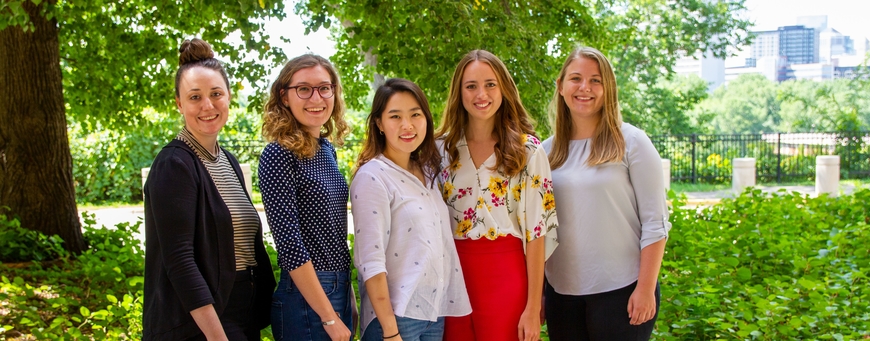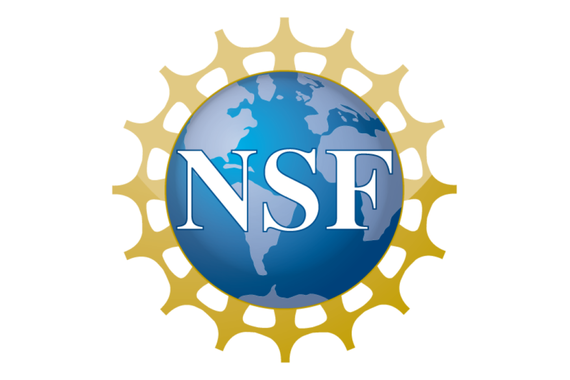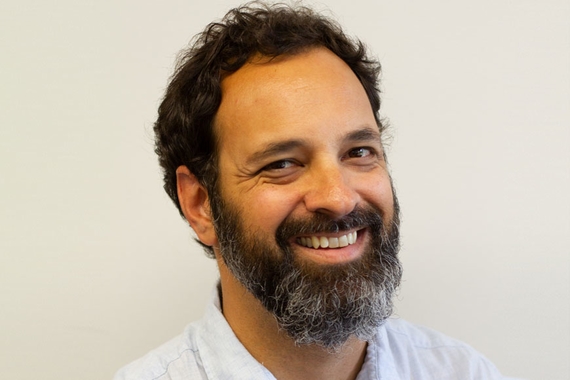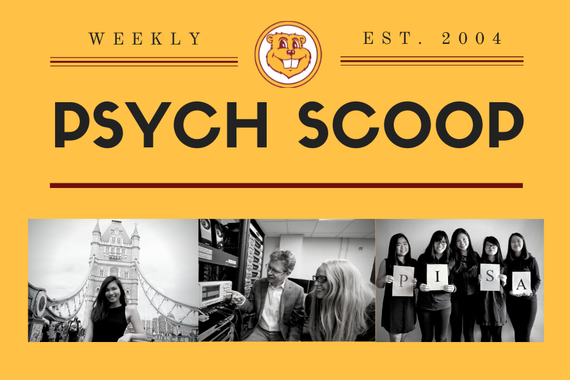Five Psychology students receive prestigious NSF Graduate Research Fellowships
The Department of Psychology at the University of Minnesota prioritizes identifying funding for our graduate students, including supporting first-year and second-year students in applying for the National Science Foundations (NSF) Graduate Research Fellowship. The NSF fellowship is one of the most prestigious awards a graduate student can receive. Both first and second-year students are eligible to receive the three-year fellowship which includes a stipend of $34k per year plus all tuition and fees paid.
An eye-popping five Psychology graduate students were awarded NSF fellowships in 2019. Here we showcase our 2019 winners and the research interests driving them to early career success:
Kelsey Hobbs explores the impact of personality on health outcomes. Building on research showing that our environment can influence how our genes express themselves throughout our lifetimes, Kelsey will examine how different personality traits work with our environment to impact our immune systems and, subsequently, our overall health. Kelsey graduated from Oakland College in 2018 and is a second-year student working with Robert Krueger in the Clinical Psychology program.
Phoebe Hessen is interested in Humanitarian Work Psychology, specifically the performance of teams involved in disaster relief across the globe. Phoebe hopes to bring what she has learned in Industrial and Organizational (I/O) Psychology about the world of work to help disaster relief teams develop ‘expert models of teamwork behavior’. In her proposed research, disaster response teams would undergo a simulation exercise after which they would engage in ‘self-correction’ training, comparing their results with the model they had developed. Through this training, teams would come to understand what behaviors are needed and learn from their experiences, continuously improving. Phoebe is a graduate of the University of Minnesota and she will continue her work here with her I/O professors Nathan Kuncel and Deniz Ones.
Kayla Huber is interested in investigating the impacts of experiencing gender-based discrimination and violence. Kayla will use principles of graph theory to visually explore networks of students in STEM majors and how gender prejudice or supportive peer behavior influence group dynamics and, ultimately, individual success. Kayla knows that the success of women and other underrepresented groups in STEM majors is important for generations to come. Kayla graduated from Lake Forest College in 2016 and works with Pat Frazier in the Counseling program.
Caitlin Sisk will use virtual reality to study how people learn to visually navigate their environments. Caitlin wants to know how our brains work with our visual system to learn how to easily, efficiently, and almost automatically move safely in our world. What are the factors that influence this Visual Statistical Learning (VSL)? Do people learn the location of different landmarks relative to their environment or from their own viewpoint? Caitlin sees her research contributing to improve how we design interactive displays, how to make it easier for us to identify potentially dangerous items, and how to set up retirement communities so that we minimize risk and promote mobility. Caitlin comes to Minnesota from the University of Notre Dame. Caitlin is working with Yuhong Jiang and is in the area of Cognitive and Brain Science.
Claire Park focuses on teenagers of color—Black, Asian and Latinx—and specific challenges these groups experience in adolescence. Youth who go through early puberty can experience negative psychosocial outcomes such as depression, yet very few studies have included youth of color. Claire is already helping to correct this absence with her previous study of over 1,750 diverse middle and high school students in the Minneapolis and St. Paul school districts. Claire’s research suggests that many young people of color may be going through puberty early and that this may impact their long-term success as they move into adulthood. Claire has hypothesized that increased stress during childhood due to racism may increase cortisol levels thereby accelerating maturity and leading to more complications. Claire is working with Richard Lee in our Counseling Psychology program.



